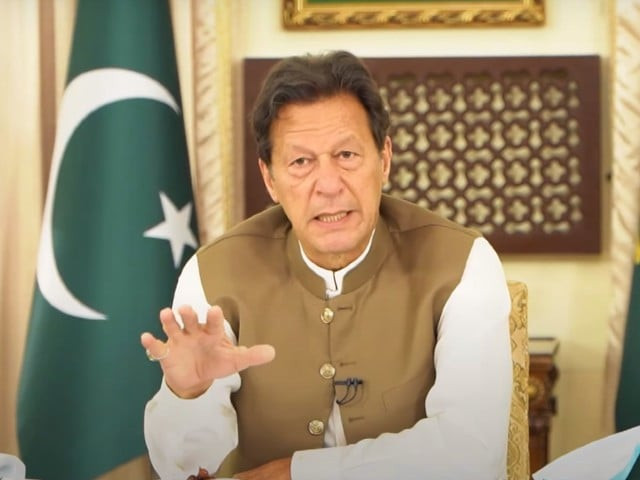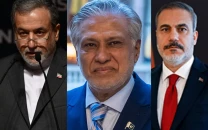PM Imran holds virtual summit with Uzbek president
The two sides signed MoUs on defence, other sectors, agreed to bolster mutual, people to people ties

Prime Minister Imran Khan on Wednesday held a virtual summit with President of Uzbekistan Shavkat Mirziyoyev, signing multiple MoUs and agreeing to bolster ties in a myriad of sectors.
During the wide-ranging talks, views were exchanged on bilateral, regional and international issues. The two sides highlighted the depth of Pakistan-Uzbekistan relations rooted in common faith, shared history and cultural affinities, read an official statement released today.
"They also reiterated their determination to maintain the momentum of high-level exchanges and further enhance the upward trajectory of the relationship. The two leaders reviewed the entire spectrum of bilateral relations -- with particular focus on political, trade, security and defence, educational and cultural domains."
"They also agreed to encourage more people-to-people contacts including through spiritual (ziyarat) tourism," the statement added.
Also read Imran unfolds road-map for recovery from Covid
According to the communique, the premier underlined the importance of enhancing political and diplomatic linkages, fast-tracking trade and economic cooperation, ensuring early finalisation of the Preferential Trade Agreement (PTA) and Transit Trade Agreement (TTA), increasing security and defence cooperation, and taking steps to deepen mutual collaboration in the fields of education, culture and tourism.
He also underscored the importance of rail, road and air connectivity and highlighted the enormous potential that exists in diverse fields to build an expanded mutually beneficial partnership.
PM Imran highlighted Pakistan’s economic security paradigm and the shifting focus to geo-economics. He stressed that Central Asia was a region of particular focus in this vision.
The progress on the Trans-Afghan Railway Line Project, agreed between Pakistan, Uzbekistan and Afghanistan earlier this year, was also reviewed.
The project, the leaders noted, would be a first step in linking the Central Asian transport network with Pakistani seaports of Gwadar, Karachi and Qasim.
The prime minister stated that once completed, the initiative would transform the geo-economic dynamics of the entire regime.
The two leaders also discussed important global and regional matters of mutual interest, and reaffirmed the commitment to continue supporting each other at all international and regional fora, including the UN, OIC, SCO and ECO, the statement said.
PM Imran apprised the Uzbek president of the latest situation in IIOJK, shared Pakistan’s perspective on issues of peace and security in South Asia, and underlined the imperative of peaceful resolution of the Jammu & Kashmir dispute.
Also read Pakistan centre-point for economic development, says PM
He also highlighted Pakistan’s efforts to facilitate the Afghan peace process for lasting peace and stability in Afghanistan. He stressed that this historic opportunity must be seized by the Afghan parties to achieve an inclusive, broad-based and comprehensive negotiated political settlement.
Premier also underscored the importance of countering Islamophobia and promoting inter-faith harmony.
The agreements and MoUs signed included developing cooperation in the field of agriculture, mutual recognition in conformity assessment of products, standardisation, metrology and technical Assistance, and defence cooperation.
President Mirziyoyev reiterated his invitation to PM Imran to attend a high-level International Conference on regional connectivity to be held in Tashkent in July 2021. Premier thanked President Mirziyoyev and reiterated his invitation to him to visit Pakistan at the earliest convenience.
The two also leaders expressed confidence that the understandings reached during the summit will further deepen bilateral cooperation and contribute towards forging a stronger, multi-dimensional relationship between the two countries.
It was agreed to continue the summit-level political dialogue in future. A joint declaration was adopted at the conclusion of the summit.



















COMMENTS
Comments are moderated and generally will be posted if they are on-topic and not abusive.
For more information, please see our Comments FAQ